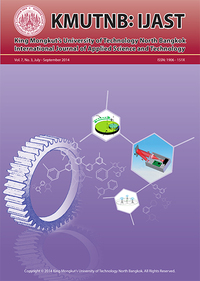An Overview of Cell Zooming Algorithms and Power Saving Capabilities in Wireless Networks
Main Article Content
Abstract
Cell zooming has emerged as a potential strategy to develop a green communication system in our society and it has become an essential research area of wireless communication. Aiming to highlight the trend of existing cell zooming algorithms and their power saving capabilities, this paper reviews a number of cell zooming algorithms that have been proposed in the literature. Static cell zooming algorithms are effective for off-peak hours and their maximum power saving capability is 50% since off-peak duration is typically not more than 12 hours.Meanwhile dynamic cell zooming algorithms are applicable in full-day operation and they are useful not only for power saving but also for load balancing. However, on/off switching delay, signalling overhead due to traffic information exchange and how to attain information of traffic spatial distribution are existing challenges in dynamic cell zooming algorithms. One noticeable point is that relative power saving in dynamic cell zooming algorithm is less than 50% if traffic spatial distribution is considered. Since location management (LM) was designed for effectively servicing to customers, further researches could lead to work on location management (LM) based cell zooming algorithms for both effective servicing and energy saving.
Article Details
How to Cite
Cho Tun, K., & Kunavut, K. (2014). An Overview of Cell Zooming Algorithms and Power Saving Capabilities in Wireless Networks. Applied Science and Engineering Progress, 7(3), 1–13. retrieved from https://ph02.tci-thaijo.org/index.php/ijast/article/view/67442
Issue
Section
Articles


